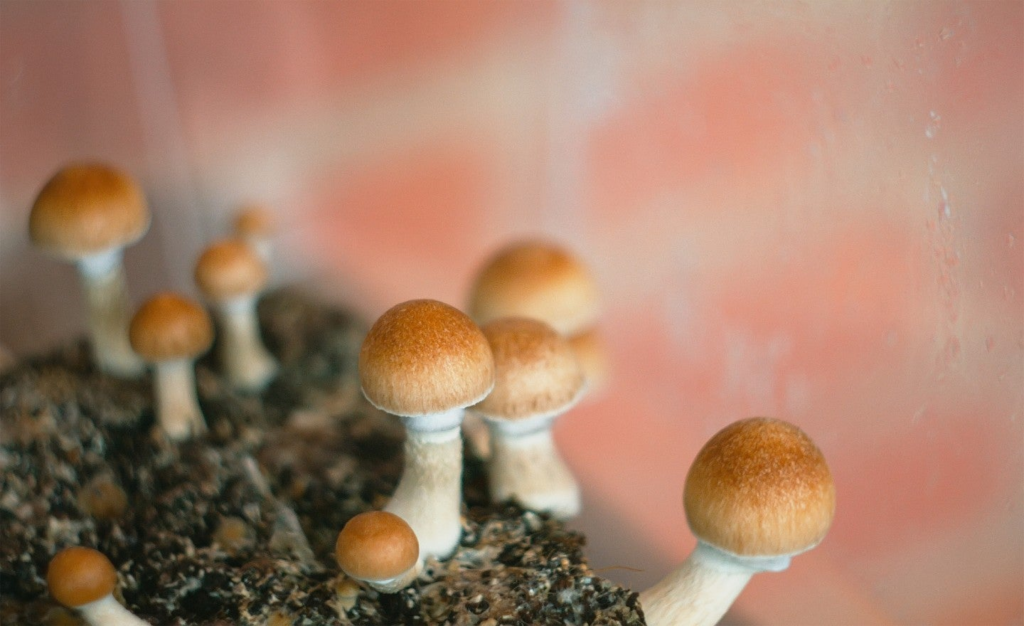
Depression and suicides are the two major public health issues worldwide. There’s an increasing rate of suicides which means there is an urgent need to find a lasting and effective intervention for depression. Some psychedelics like mushrooms have shown some potential in helping with depression, but how to use mushrooms for depression is a challenge that faces both physicians and patients because of the negative stigma associated with its use.
What is depression?
Table of Contents
This is a mood disorder that may engulf you out of the blue or as a result of a personal loss or defeat where you experience persistent feelings of hopelessness, sadness, helplessness, pessimism, worthlessness, or guilt. It will interfere with your concentration, motivation, and day-to-day functioning. Depression is said to be a leading cause of disability globally with millions of people of all ages suffering from this disorder.
It’s a complex disorder that affects most of your body systems including your immune system, interferes with your appetite, disrupts your sleep, and may cause you to either gain or lose weight. Depression is also becoming increasingly common in children. Both mild and severe cases of depression can be treated. Early treatment may prevent recurrent episodes, or cognitive behavioral therapy which is the most effective treatment tackles your problematic thought patterns with inclusion or exclusion of antidepressant drugs.
A psychedelic compound, psilocybin, that is found in magic mushrooms has shown promising potential in the treatment of depression. After you ingest this compound it’s converted into psilocin which is more lipid-soluble and is a psychoactive agent. Psilocybin is a controlled substance which means it has a high potential of being abused and it’s used as a recreational drug that gives you a feeling of euphoria and distortion of your senses that is common in hallucinogenic drugs.
What is psilocybin?
This is a natural hallucinogen that activates your serotonin receptors found in the part of your brain that controls your mood, perception, and cognition. Hallucinogens also work to regulate your panic and arousal responses, but psilocybin may not always cause you to have visual or audible hallucinations. Instead, it can distort how you perceive people and objects around you. The amount you take, your expectations, and past experiences can all impact on how it affects you.
How mushrooms are used
You can either take the magic mushrooms fresh or dried. Some people mix them with their food to mask the bitter taste, brew it in your tea and drink it, you will also find powder mushroom in capsule form, or covered with chocolate. After your gut ingests and absorbs the psilocybin, your body converts it to psilocin whose hallucinogenic effects take about 30 minutes after ingestion and lasts between 4-6 hours.
The early signs that it’s starting to take effect include excessive yawning and nausea. The effects may be mild which will leave you feeling drowsy or relaxed, but if you take stronger mushrooms or higher doses you will experience nervousness, paranoia, hallucinations, and anxiety. They can also alter your perception of time, reality, and place and even change your mood and feel intensely.
The effects of psilocybin will vary from person to person depending on your personality, your mental state, and your expectations. If you have mental issues or you’re feeling anxious about using this compound, you’re more likely to have a bad experience. You may have an enjoyable episode, while others may experience terrifying thoughts of losing control, intense paranoia, fear of death, and panic attacks.
Some of the physical effects you will experience after ingesting mushrooms include:
- Lack of coordination
- Nausea and vomiting
- Drowsiness
- Dilated pupils
- Muscle weakness
- Increased heart rate, temperature, and blood pressure
If you’ve ingested high amounts of the mushrooms you might require a trip to the emergency room and it can also be severe enough to cause death.
The physiological impact of psychedelic mushrooms
Magic mushrooms are known for causing hallucinations that cause you to feel, see, hear, smell, or taste things that aren’t real. This experience can either be positive or negative. The dramatic changes in the state of your brain and neuron interactions can cause long-lasting or chronic effects like paranoia and intense panic. If you abuse mushrooms you may experience panic attacks, feel like you’re being watched, or experience a psychotic break. Some people may harm themselves or others in periodic violent outbursts. You may end up in the hospital with lasting damage after a psychotic episode.
Physical effects
Most of the physical effects are short-term, but if you have a preexisting condition, it could be harmful. Some of the short-term effects include high blood pressure, dry mouth, chills, sweating, poor coordination, increased heartbeat, irregular, abnormal, or rapid breathing, shaking, and loss of muscle control. One of the long-term physical effects of abusing mushrooms is cross-tolerance. Mushrooms affect your brain just like other psychedelic drugs like LSDs and other related drugs like anesthesia which lead to high tolerance to these drugs and may lead to future medical care problems and even substance abuse for mental or physical disorders.
Health effects
There will be slow changes that will occur in your body even without any underlying health condition. Psychedelic mushrooms cause high blood pressure and over time it can change to be a chronic case. Your mental state may change in just one instance of abusing the mushrooms while the emotional and psychological changes are unpredictable which makes psilocybin a very dangerous drug.
Mushrooms are an illegal drug in the U.S. and if you decide to use them in treating depression, you will be committing a crime. So they have a high potential of being abused and serve no legitimate medical purpose.
Final thoughts
Scientifically, magic mushrooms can help in treating depression while the FDA has approved the active ingredient psilocybin to be used in drug trials in the treatment of depression. Psilocybin affects how your brain works by changing the way different parts of your nervous system communicate. The effects of this drug will vary with each individual depending on your mental state, expectations, and personality.


